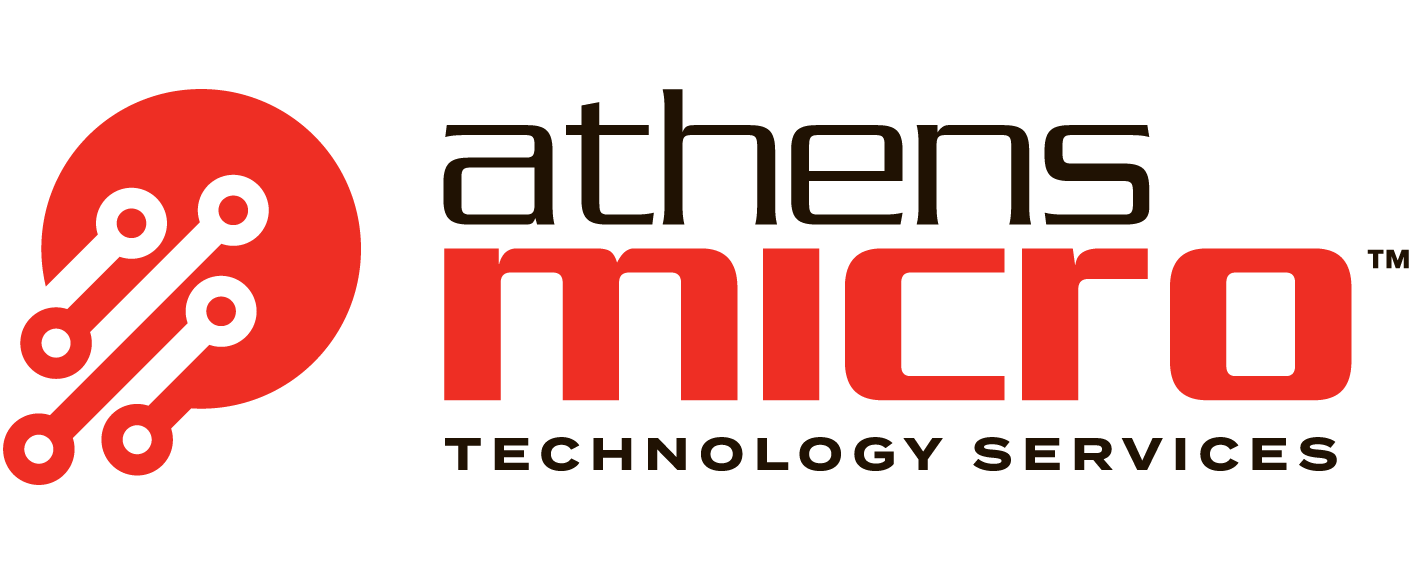The Hidden Costs of IT Downtime
Picture this: a business comes to a grinding halt because a crucial system fails. Employees can’t access important files, customer service slows, and revenue opportunities slip away. Every minute lost adds up to significant costs. While reactive IT support scrambles to fix the problem, the real damage is already done.
For small and mid-sized businesses, IT downtime is more than just an inconvenience—it’s a direct hit to productivity and the bottom line. Proactive IT maintenance helps prevent these disruptions by identifying potential issues before they cause costly failures.
At Athens Micro, we specialize in keeping businesses running smoothly with strategic, preventative IT support. As a trusted IT support company, we’ve seen firsthand how businesses that invest in proactive maintenance experience fewer disruptions, lower repair costs, and greater efficiency.
Why Proactive IT Maintenance Matters
Preventing Issues Before They Happen
A well-managed IT infrastructure isn’t just about fixing problems—it’s about preventing them altogether. Businesses that work with an IT consultant to establish a regular maintenance plan benefit from:
- Routine system updates that keep security threats at bay
- 24/7 network monitoring to detect issues before they escalate
- Data backups to prevent loss in the event of an emergency
Reducing IT Costs
While emergency IT repairs are unpredictable and expensive, Managed IT Services for small businesses help control costs. Instead of dealing with expensive downtime and unexpected repair bills, businesses benefit from a structured approach to IT expenses.
- Fewer emergency repairs lead to lower long-term costs
- Optimized hardware and software lifecycles prevent unnecessary replacements
- Predictable monthly costs make budgeting easier
Strengthening Security and Compliance
Cyber threats are evolving every day, and businesses must stay ahead of potential attacks. Healthcare IT consulting firms, for example, ensure that companies handling sensitive data meet compliance requirements while keeping information secure.
- Proactive security updates prevent breaches before they happen
- Regular vulnerability assessments identify potential risks
- Employee cybersecurity training reduces human error risks
Key Steps in a Proactive IT Maintenance Plan
Regular System Audits and Monitoring
IT consultants use real-time monitoring and audits to evaluate system performance. This includes tracking server uptime, detecting unusual network activity, and ensuring that backups are working properly.
Scheduled Updates and Patch Management
Outdated software is a security risk. A structured maintenance plan includes automatic updates, security patches, and system improvements to ensure optimal performance.
Data Backup and Disaster Recovery Planning
Business continuity depends on reliable data backup solutions. Having a recovery plan in place minimizes disruptions in the event of a system failure, cyberattack, or natural disaster.
The Role of Managed IT Services in Proactive Maintenance
Continuous Monitoring and Fast Response
Businesses partnering with a managed IT services provider gain access to continuous network monitoring. This means issues are identified and resolved before they cause interruptions, ensuring that teams stay productive.
Scalable IT Support for Growing Businesses
Companies evolve, and so do their IT needs. IT consultants ensure that businesses have the right infrastructure in place to support expansion without increasing downtime or inefficiencies.
Custom IT Solutions for Industry-Specific Needs
Hospitality IT solutions, healthcare IT consulting, and other specialized services ensure that businesses in highly regulated industries remain compliant and efficient while reducing the risk of downtime.
How Cloud Solutions Enhance IT Reliability
Cloud-Based Backup and Disaster Recovery
Storing data in the cloud eliminates the risk of hardware failures causing data loss. Cloud service providers ensure secure, real-time backups that can be quickly restored if needed.
Remote Access and Business Continuity
Cloud solutions empower teams to work remotely without disruption. If an office experiences power loss or other infrastructure issues, employees can continue working from anywhere with secure access to necessary data.
Cost Savings Through Cloud-Based IT Management
Transitioning to cloud-based systems reduces the need for expensive on-premise servers and minimizes IT maintenance costs. Businesses using managed cloud services often experience lower operating expenses and increased flexibility.
IT Support Strategies That Minimize Downtime
Employee Training and Best Practices
Even the best IT systems can’t function optimally if employees aren’t aware of cybersecurity risks and best practices. Regular IT training ensures that staff can recognize phishing attempts, avoid security threats, and use systems efficiently.
Standardized IT Policies and Procedures
Clear IT policies help businesses minimize downtime by ensuring that employees follow structured procedures when handling technology-related issues. Small business IT support teams help create policies that keep operations smooth.
Vendor Management and Hardware Lifecycle Planning
Working with an IT support company helps businesses stay on top of hardware lifecycles and vendor management. This prevents outdated systems from causing performance issues or unexpected failures.
How Athens Micro Can Help
At Athens Micro, we provide customized Managed IT Services designed to keep businesses running efficiently. Whether you need hospitality IT solutions, healthcare IT consulting, or general IT support for small businesses, our team delivers proactive strategies that prevent downtime and improve performance.
Don’t wait for a crisis—take control of your IT today.
Enhancing Productivity with Reliable IT Infrastructure
Minimizing Workplace Disruptions
Technology should empower your team, not slow them down. When IT issues arise, employees often waste valuable time troubleshooting problems instead of focusing on their work. Proactive IT maintenance ensures systems remain reliable and responsive, minimizing disruptions that impact productivity.
Businesses that invest in ongoing IT support experience fewer slowdowns due to:
- Faster network speeds and optimized systems that support employee workflows
- Automated software updates that prevent compatibility issues
- Consistent monitoring and troubleshooting before small problems turn into major obstacles
Streamlining IT Support for Employees
A well-managed IT support structure gives employees direct access to expert assistance when needed. Instead of waiting for a major issue to escalate, businesses can rely on managed IT services to resolve concerns quickly. A helpdesk solution provides immediate troubleshooting, while remote monitoring prevents problems before they occur.
Improving IT Scalability for Future Growth
Building an IT Strategy That Grows with Your Business
As businesses expand, so do their IT needs. Without a proactive approach, companies often struggle with outdated hardware, inefficient workflows, and unexpected system failures. IT consultants help organizations create a roadmap for future growth, ensuring their technology infrastructure scales efficiently.
A proactive IT strategy supports:
- Seamless software and hardware upgrades that prevent performance bottlenecks
- Cloud-based solutions that provide flexibility for remote teams and business expansion
- Long-term planning to prevent costly last-minute tech overhauls
Avoiding Downtime During Expansion
Growth should never come at the cost of productivity. When businesses scale without an IT plan, they often experience network congestion, slow system performance, and security vulnerabilities. Proactive IT maintenance prevents these challenges by optimizing systems before expansion occurs.
Strengthening Cybersecurity with a Proactive Approach
Preventing Costly Cybersecurity Breaches
Cyber threats continue to evolve, and businesses that don’t prioritize security put themselves at risk for data breaches, financial losses, and reputational damage. Proactive cybersecurity measures help protect sensitive data and ensure compliance with industry regulations.
Key cybersecurity strategies include:
- Advanced threat detection to monitor and block suspicious activity
- Firewall and antivirus protection to prevent malware attacks
- Regular employee training to reduce risks of phishing and human error
Compliance and Data Protection for Regulated Industries
Businesses in healthcare, finance, and other regulated industries must follow strict data protection policies. A proactive IT strategy ensures companies remain compliant with regulations such as HIPAA and PCI-DSS while avoiding costly fines or legal issues. IT security experts provide:
- Ongoing security assessments to identify and fix vulnerabilities
- Data encryption to protect customer and company information
- Disaster recovery plans to restore data in case of an incident
Ready to Strengthen Your IT Infrastructure?
Investing in proactive IT maintenance is one of the smartest decisions a business can make. Avoid costly downtime, improve efficiency, and protect your company’s future with expert IT consulting.
Contact Athens Micro today to learn how our team can keep your business running at its best. Schedule a consultation now!

